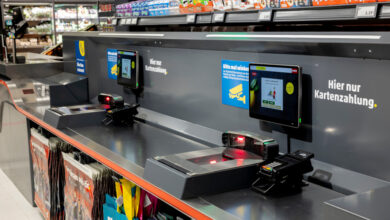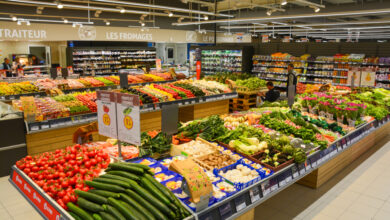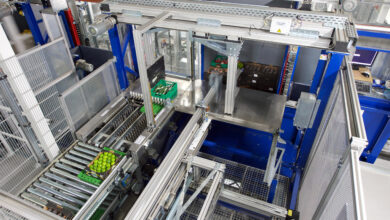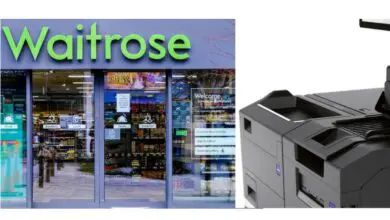Kroger pilots smart shopping cart from Caper
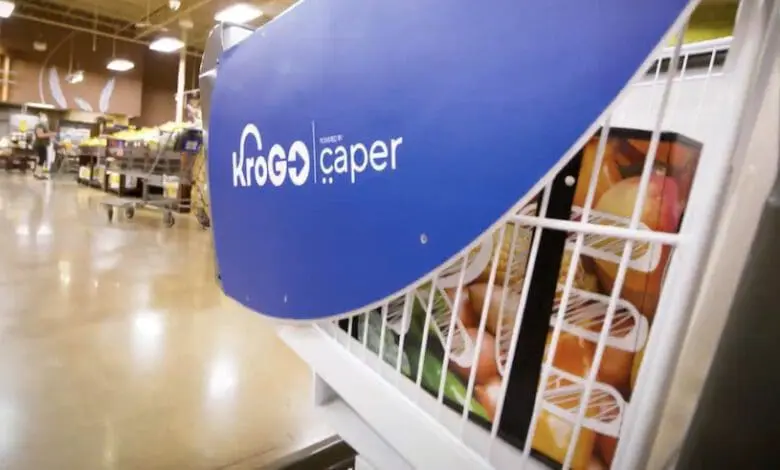
US supermarket chain Kroger is testing smart shopping carts from technology provider Caper at a store in Cincinnati. With the systems, called KroGo, customers can scan, weigh and pay for their goods directly at the shopping cart.
The so-called Caper Cart from New York start-up company features a flat screen, several cameras, an integrated scale as well as a card reader. The system works with artificial intelligence (AI) and computer vision.
AI recognises goods and analyses shopping behaviour
Customers shopping with KroGo first identify themselves using their customer card. Then they place a shopping bag they brought with them or bought at the store in the trolley. Now shoppers can pack selected products directly into the cart. Those are detected and recognised by the cameras as they are placed in the bag. Also Items that have to be weighed are automatically registered and the correct price is determined.

Customers receive detailed product information on the screen and can always check totals of their purchases. Based on shopping behaviour, the software suggests suitable additional items. The system also points at offers and discount campaigns. It also helps navigating the aisles. At the end of the shopping trip, customers check out directly at the Caper Cart paying by card. They can then leave the store with their shopping bags.
A sustainable trend?
In October, Caper had already deployed its intelligent shopping cart at a store of Canadian grocer Sobeys. Long Island-based organic supermarket Foodcellar Market is also using the technology. There are other tech providers offering similar solutions. Best known is certainly Amazon’s Dash Cart, which the online giant is currently testing in an Amazon Fresh store in Los Angeles.
German grocers are also experimenting with similar technologies. Edeka Minden-Hanover is using the Easy Shopper from manufacturer Pentland Firth in around 40 of its Edeka and Marktkauf outlets. Edeka Aschoff in Kassel as well as nine other Edeka retailers have implemented a system called Scanbox by start-up company KBST, which was developed in partnership with transport system provider Expresso.
It remains to be seen whether and to what extent these systems can establish themselves in the long term. Without doubt, they can offer a fast and convenient shopping experience to customers with larger shopping baskets. Intelligent shopping trolleys also open up excellent opportunities for marketing and individual customer targeting. However, acquisition and operation of smart trolleys will be expensive. Self-scanning with customer-owned smartphones appears to be a more cost-effective alternative, especially in combination with an intelligent validation solution such as Bizerba’s Supersmart technology.

